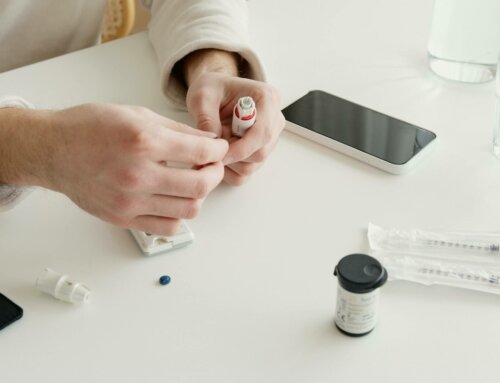Proper nutrition is important during pregnancy if you have gestational diabetes. When you have gestational diabetes your are at risk of developing high blood sugar that can be harmful to you and your baby. A special meal plan coupled with healthy lifestyle habits can help keep your blood sugar levels under control.
- When you have gestational diabetes, your body is unable to efficiently produce or use insulin. This is a hormone made by the pancreas that helps cells accept glucose as a usable fuel in your body. When large levels of glucose accumulate in your blood instead of getting into your cells you do not have essential fuel. Controlling high blood sugar levels protects you and your baby. Eating healthy foods is necessary when you have gestational diabetes.
- Eat a variety of healthy foods throughout the day including whole grains, fruits and vegetables, low-fat dairy and lean proteins. Eat several small meals throughout the day rather than one or two large ones. Choose three small meals and two to four healthy snacks each day including a snack after dinner. Eat small portions throughout the day to help you to avoid blood sugar fluctuations.
- Choose complex carbohydrates such as whole grain breads and pastas, oatmeal and brown rice as well as potatoes, peas and beans. Minimize your intake of simple carbohydrates that quickly break down into sugar such as white pasta, white bread and sugary snacks. Carbohydrates should be high in fiber and spread throughout the day. Pair them with lean protein. Protein gives you energy, makes you feel full and helps control blood sugar levels. Lean protein foods include chicken, turkey and egg whites as well as low-fat dairy and tuna packed in water.
- Eat a healthy breakfast to start your day off. After sleeping, your blood sugar may be elevated. Limit carbohydrates such as breads, cereal and milk at breakfast and choose foods with protein such as eggs and low-fat cheese.
- Schedule regular meals and avoid skipping meals. Eat at a consistent time and try to consume the same amount of food during each meal. Evenly distributing your food intake throughout the day helps keep your blood sugar levels stable.
- Avoid foods with simple sugars such as fruit juices, desserts and soda. Consuming these kinds of foods can cause your blood sugar levels to soar. If you get cravings for sweets keep sugar-free candy at home and eat in moderation.
- Milk is a carbohydrate and may need to be limited since it can raise your blood sugars. Discuss this with your doctor and find alternative sources of calcium. Suitable beverages when you have gestational diabetes include water with a squeeze of lime or unsweetened and decaffeinated tea.
- Along with a healthy diet you should incorporate moderate exercise into your daily routine to help lower blood sugar levels and reduce stress. Talk to your medical health care team before starting any diet or exercise regime. Your doctor might recommend consulting with a dietitian to discuss portion sizes and well-balanced meals. If dietary changes do not keep your blood glucose levels in a healthy range you may need to take insulin injections.
Many pregnant women effectively control gestational diabetes by following a diet and exercise plan recommended by their health care team. Most women who follow a healthy program do not have diabetes after their baby is delivered. A good eating plan can help to keep you and your baby healthy.












Leave A Comment